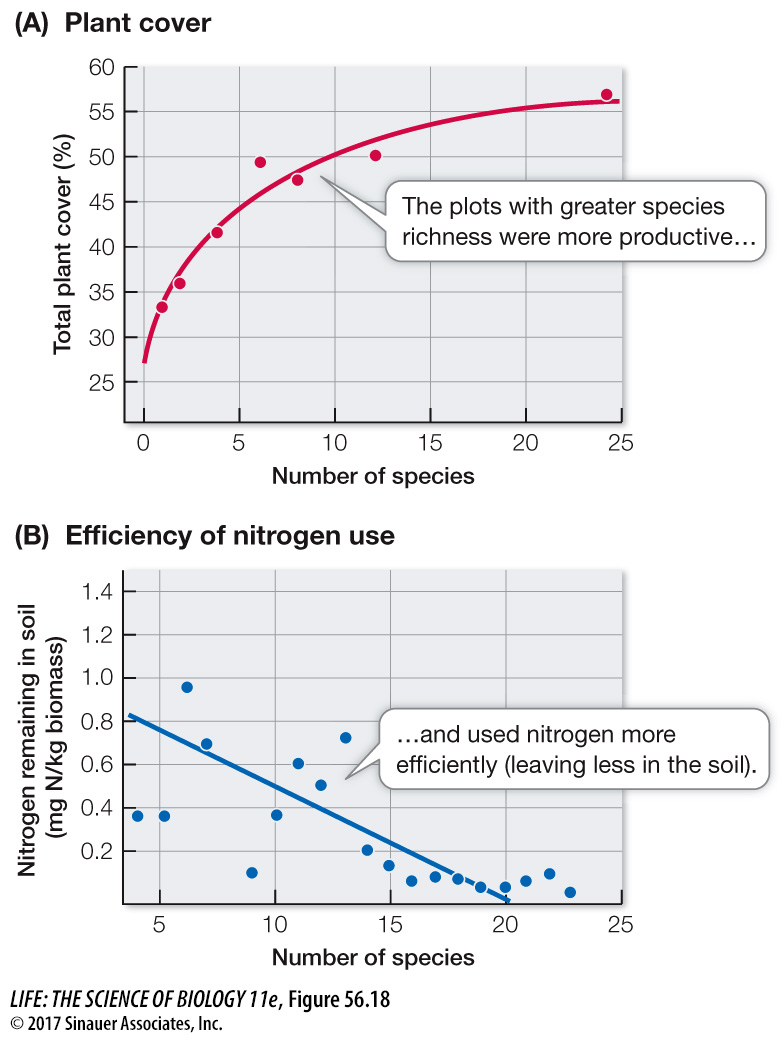To test the hypothesis that species-rich communities are more stable than species-poor communities, David Tilman and his colleagues at the University of Minnesota cleared 120 outdoor plots, in which they planted grasses in mixtures ranging from 1 to 24 grass species. At the end of each growing season, they measured total plant cover (a measure of grass biomass, and thus of net primary production) and the population densities of all the grasses in each plot. Over a period of 11 years, which included a serious drought, the plots with more species were more productive (Figure 56.18A), and their productivity was less variable from year to year. These findings were consistent with the hypothesis that species richness promotes productivity and keeps productivity stable. Moreover, in the plots with greater species richness, soil nitrogen was used more efficiently (Figure 56.18B). However, the population densities of individual species in the plots were not stable over the years (regardless of a plot’s species richness) because different species performed better during drought years and wet years. In other words, higher species richness increased the stability of plant production in the plots, but not the stability of their species composition.

Figure 56.18 Species Richness Enhances Community Productivity David Tilman and his colleagues cultivated a total of 120 grassland plots, containing from 1 to 24 grassland species, for 11 years. (A) Total plant cover (a measure of grass biomass, and thus of net primary production). (B) The amount of nitrogen remaining in the soil is a measure of resource use efficiency.
Researchers continue to debate whether species diversity is responsible for maintaining stability or is simply correlated with stability. This question is important because many of the alterations that humans have made in the structure of natural communities have reduced their species richness, and many of these human-altered communities—notably agricultural communities—are notoriously unstable.
